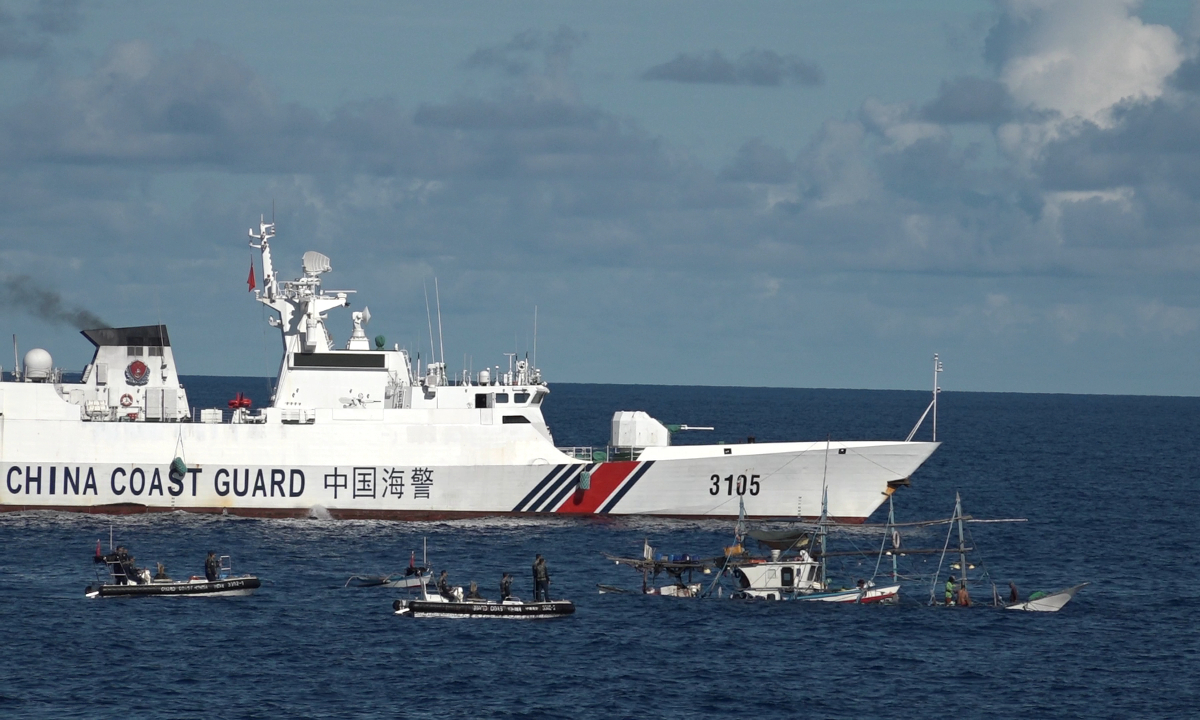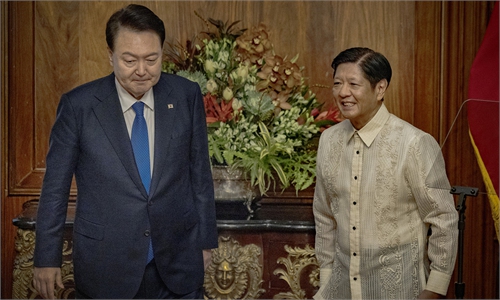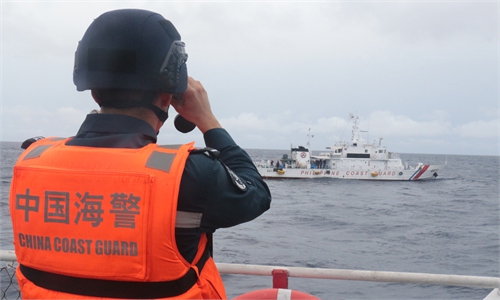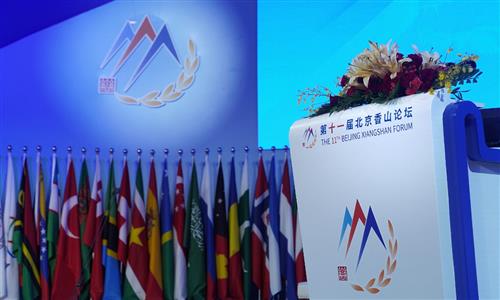Under US manipulation, Philippines' frictions with other ASEAN members grow: expert

A China Coast Guard (CCG) vessel in patrol helps rescue a Philippine fishing boat in distress in the waters near China's Huangyan Dao, also known as Huangyan Island, in the South China Sea on June 29, 2024. Photo: Courtesy of China Coast Guard
The Philippines has failed to properly handle or at least ease the South China Sea issue due to "diplomatic decoupling" taking place in recent years not only between the Philippines and China, but also between Manila and other ASEAN members, as well as within the Philippines' domestic strategic-policy establishment, said an article recently published by the International Institute for Strategic Studies (IISS).Chinese experts said on Monday that these are unlikely to be changed under the current Philippine administration, because the administration is being seriously manipulated or even controlled by the US, so this problem is not just about whether the Philippines' foreign ministry can build communication with regional countries or not, it's about whether the country's decision-makers can make independent decisions based on the Philippines' own interests and the region's peace and stability.
The IISS published an article titled "Diplomatic decoupling in the South China Sea" on its website on Friday. The article said the recent frictions between the Philippines and China over the South China Sea "obscure a deeper diplomatic decoupling that has been taking place over the past few years on three levels: firstly, between the Philippines and China; secondly, within the Philippines' domestic strategic-policy establishment; and thirdly, between the Philippines and other Southeast Asia states."
Li Haidong, a professor at China Foreign Affairs University, told the Global Times on Monday that the approach that the Philippines has taken recently over the South China Sea issue is problematic, and brings no meaningful gains to the Philippines at all, so some scholars or think tanks may start to wonder whether Manila's decision-making should be blamed.
The IISS article said, "The situation is exacerbated by the absence of the Philippines' Department of Foreign Affairs (DFA) from the driver's seat of domestic strategic policymaking on the South China Sea, as Filipino analysts have noted."
The prominent role of maritime law-enforcement agencies and the military of the Philippines has been critical in signaling Philippine resolve in recent years, said the article. "But without a strong and sound diplomatic lead, that signal may be lost in the tactical noise, diluting its strategic effects," the article noted.
On frictions between the Philippines and other ASEAN members, the article said "Manila feels that its Southeast Asian friends have, not for the first time, abandoned it in its hour of need. Southeast Asian states, meanwhile, feel the Philippines has drifted too far from China and been overly belligerent. Some also struggle with the lack of diplomatic consistency and coherence from Manila."
In fact, it was not Southeast Asian countries that "abandoned" the Philippines, but Manila, under the current administration, that made itself a troublemaker in the region, putting up obstacles to cooperation and prosperity, and adding risks of bloc confrontation that benefits no one and only serves the hegemonic interests of external powers. No one wants to play or be played by Washington's great power competition, analyst said.
Li said this kind of situation will be hard to change within the term of Marcos Jr. "This has been decided by the nature of this administration, which has been deeply influenced or even controlled by the US."
As long as the Philippines can get rid of the influence of the US, the Philippines will be able to develop sound and stable ties with not only China but also other regional countries and ASEAN members, and the so-called problem of "diplomatic decoupling" will eventually be solved, Li said.




